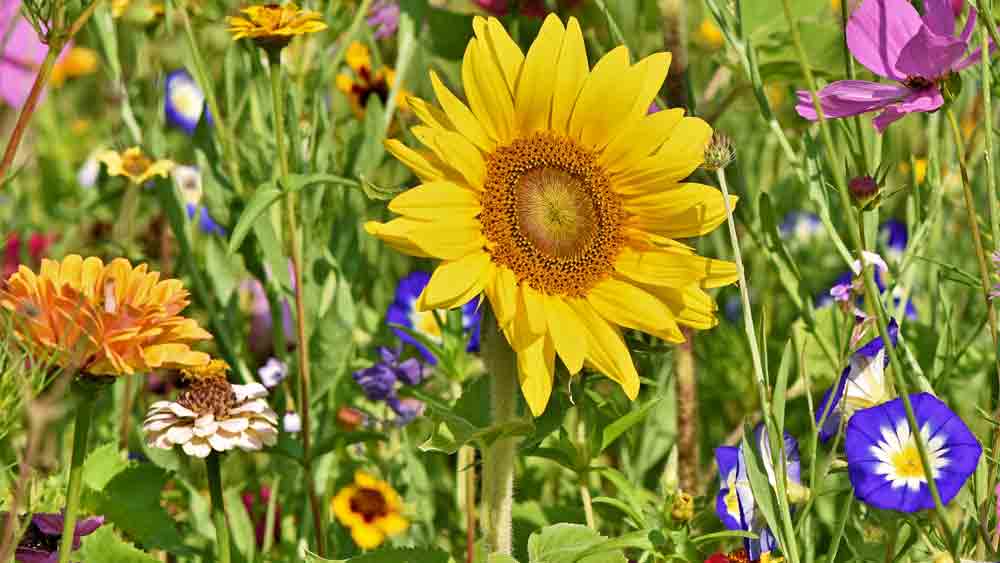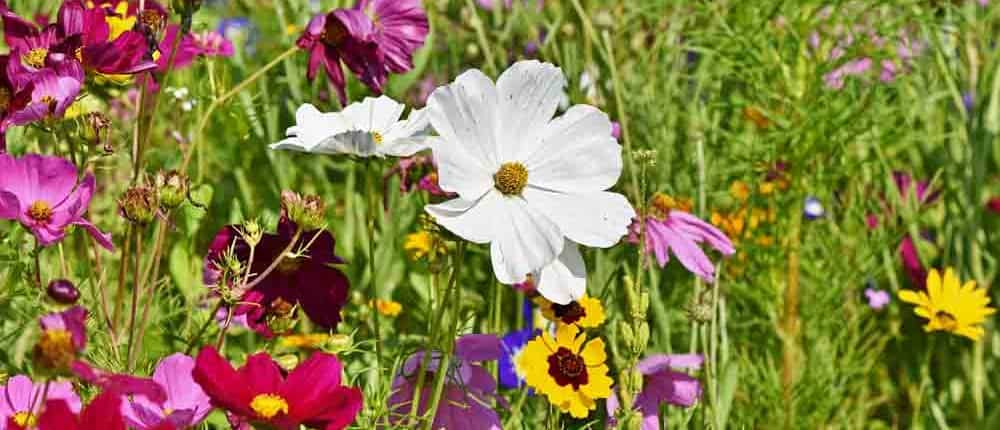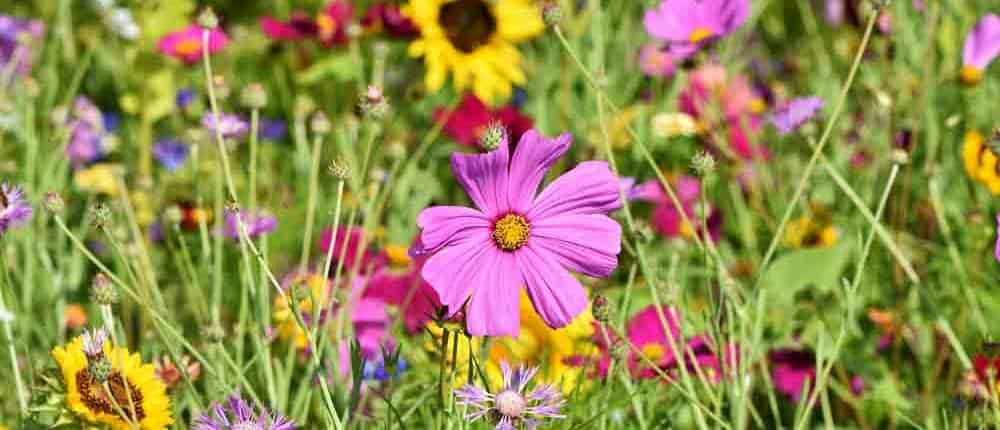Plant Your Spring Flowers in the Fall
Sow Flower Seeds in the Fall?
Did you know that fall is the best time to plant many wildflower and flower seeds for next spring? It’s true – if you want a beautiful patch of flowers for their scent and color or to attract pollinators, the best time to plant them is not next spring but very soon – this fall.
Most wildflowers can (and should) be planted in the fall or early spring throughout many regions of the U.S. In the Southern and Western areas of the country, the fall months of September through December are the most favorable time to plant wildflower seeds. In Northern and Northeastern regions, seeds planted in the fall will remain dormant over the winter. Many varieties will quickly germinate to allow the seedling enough time to become established before going dormant for winter. Other varieties will just remain dormant within the soil until early spring. They will germinate and emerge in the spring when the conditions are favorable.
Follow Mother Nature
For the Best Spring Flowers
When you think about the life cycle of many flowers without man’s interference, they emerge in the spring, grow and flower from summer to early fall, produce seeds that scatter to the winds, and then the plant dies or goes dormant for the winter. The seeds remain in the cold winter ground, waiting to emerge in the spring. Almost all varieties of flowers, whether domesticated or wild, need periods of cold followed by warming, such as freezing and thawing, that naturally happens in the soil outside. This is called stratification, and it keeps the seeds dormant for enough time to sprout in the warm spring days.
Browse our Flower Department now and place your flower seed orders before the spring to benefit from the natural cycles. If you need specific information about what flowers would work best in your area, email us your questions.
Otherwise, if you are new to flower gardening, one of our flower mixes is a great place to start.
Successful Seed Planting Tips
For the Best Germination
Do not plant your seeds too deeply; try to broadcast them uniformly. Think about how the natural cycle works: The seed heads dry out and shatter to release the seeds. They scatter onto the top of the soil and, over time, work their way into the proper position for germination.
This can sometimes be achieved by mixing your seeds into a light soil mix and then spreading with a rake. Try not to cover the flower seeds deeper than 1/16 of an inch. If you live in an area with heavy bird pressures, you might have to use a floating row cover or cover slightly deeper to prevent bird predation. Or do as we sometimes do here and as the Native Americans have done: plant one for the birds, one for God, and one for the farmer!



